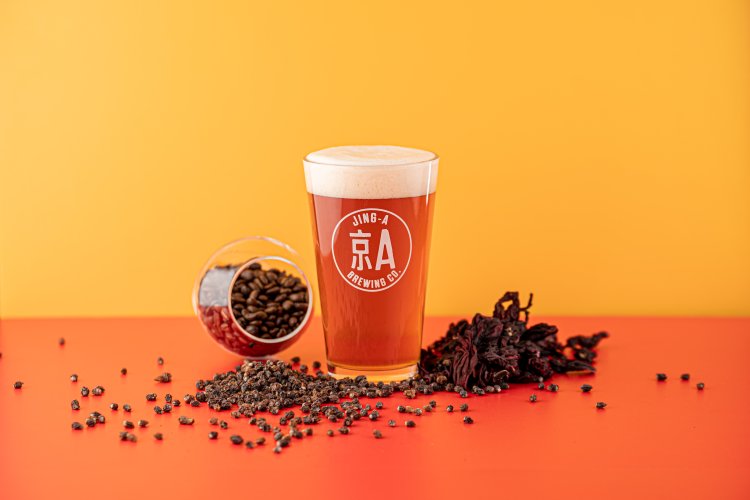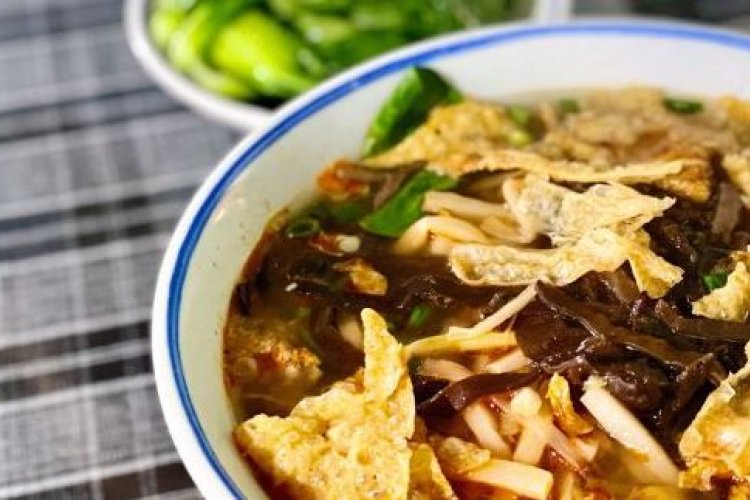Teutonic Tastes: Ritz Carlton Beijing Executive Chef Andreas Krampl
A seasoned world traveler and chef, Andreas Krampl has worked in numerous kitchens around the world, including that of renowned German Chef Heinz Winkler. Agenda caught up with him to learn more about love of ducks, his international career, and why working with the best is, indeed, the best.
Describe your cuisine in three words.
Simple, tasty, seasonal.
You’ve been in Beijing for about a half a year now. How do you like it so far?
The first few months were a period of adjustment, and I wasn’t sure what to think. Now I think it’s ok, I know how things work, how I am going to get around. My favorite part has been the food, of course. There is so much available here, and you can eat so well on so little. I also love being out in the parks with my son, and doing some “copy” shopping. You can really get anything here for next to nothing.
Where did you first learn to cook?
I think I first learned to cook at my mom’s stove. I was the youngest, so I was the first one home from school. She would give me little things to do, like switch on the stove or mix the pancake batter, and that’s how it all started. My favorite things, even when I was little, were seasonal products. One of my favorite dishes as a young boy was pancakes with sliced apples and sugar sprinkled on top. Or potato dumplings filled with plums, which we had about twice a week during plum season. You make it by splitting a plum, sticking a sugar cube inside, and then rolling it in a potato dough. You then put it into simmering water and crust it with breadcrumbs mixed with sugar. It’s a traditional desert, and definitely one of my favorites.
I think most of my culinary influences came from my grandmother. The last time I went home she cooked my wife and I a four-course meal. She’s 88, and she went to the market and picked all of the ingredients and prepared the whole meal, and baked two different cakes for coffee afterwards. It was unbelievable. I definitely got my culinary talent from her.
How did you find time to meet your wife?
I was actually working as a fine dining chef in Auckland, New Zealand, and she was the bartender in the adjoining bar. We used to exchange food for drinks, and that’s how it all started.
Why do you think you’ve won so many awards?
I don’t know if there have been that many… I always try to work with the best and learn from the best, and to adopt those standards. Of course I could never achieve any of those awards by myself – it’s the team you work with that makes the real difference, and I have been lucky to work with some really good teams. If I put a menu into place and it wins an award, it didn’t do so because I wrote the menu, but because the team really put their heart into the execution.
What’s your management policy?
I think I’m one of the few really hands-on chefs out there. In the mornings I am in the kitchen cooking eggs with my guys. There’s nothing I won’t do, and they always see me in the kitchen doing things that executive chefs normally don’t do. In my position, I need to be better, faster and more organized than any of my chefs at any of my tasks.
What are your favorite dishes at the Ritz right now?
I don’t know if I have a favorite dish, but we just fine-tuned the aroma of the Hainanese chicken and it’s quite good. If you’ve eaten it in Singapore before, there is, of course, no comparison, but after several rounds of fine-tuning we’re getting pretty close.
Other than that, I’m really a fan of a good piece of meat and right now we have some great cuts in Aroma and Barolo. We’ve also updated the snack menu in the bars, so now it’s a bit more streamlined and includes favorites from all over Asia.
What are your favorite places in Beijing?
My favorite park is Chaoyang Park, and I’m out there every weekend with my son. As for restaurants, I really like No Name restaurant and the Din Tai Feng next door to here. The food court in the mall also does a really good duck, and I head down there for wonton soup and roast duck every Sunday. Value for money, I think it’s really one of the best ducks in town.
For an upscale duck, Made in China is probably one of the best. I know that the chef there has also done a lot of research on duck for his own restaurant, and he actually supported me as I was opening my restaurant. I don’t go to a lot of five star hotels, unless I’m going over there to see friends of colleagues. As for the top restaurants, I would have to say Maison Boulud and Asia Grill. That’s where my wife and I will go to treat ourselves.
Have your eating habits changed since you moved here?
Not really. I have eaten a lot more duck since I moved here, because it’s one of my favorite dishes. It was really hard to find good duck in Dubai or Bali, but here one of my favorite things is duck, whether Beijing duck or Cantonese duck.
We read you have a passion for motorbikes. Are you ready to tackle the mean streets of Beijing?
I haven’t gotten around to it, but it is something I am planning on doing as soon as I get my license sorted out. Our general manager is also a big fan and we used to ride together in Bali. Before I came here he told me all about the great riding outside of Beijing. I’ve driven in some of the craziest cities in the world in Thailand and India, so I’m not too worried about Beijing’s drivers.
How’s your kitchen at home?
Well, my wife always complains that as a chef I should have a much bigger kitchen, but it’s really quite small. I get my pots at Ikea, and what I really rely on is a good quality herbs. I get a lot of my ingredients at either Carrefour or the Dongjiao Market. Carrefour is clean and convenient, and their meats, with the exception of the beef, are pretty good quality, and the Dongjiao Market has some pretty good ingredients.
So, as a fellow owner of a small kitchen, can you teach us a simple winter recipe?
One of the recipes my grandma taught me is a veal stew with lots of onions and tomatoes. You sauté the onions until they brown a little and become translucent, and then you add some tomato paste and brown that as well. Then add a bit of water or chicken stock, and if you have a blender, blend it until smooth like a curry. Then drop some cubes of veal shank into the pot and simmer it for two and a half hours, until the meat is soft and tender. You can use other meats as well.
To read more from the most recent issue of Agenda, download the PDF here. To find a copy, contact our distribution department at distribution@agendabeijing.com with an idea of where you work, live or play and we'll tell you where you can find one near you.






